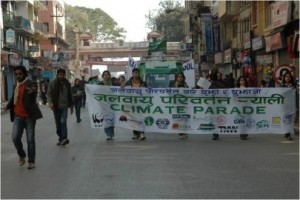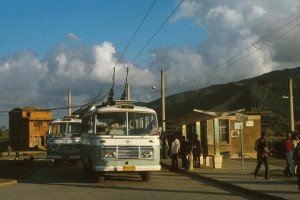On 2008, the World Bank with its development partners came to an agreement to mobilize new and additional financing for activities and investments that demonstrate financial and other incentives to scaled-up support for adaptation and mitigation and established the strategic Climate Investment Funds (CIF) along with its other two funds under it: Clean Technology Fund (CTF) and Strategic Climate Fund (SCF). The group recognizing the UNFCCC deliberations also presumes that the CIF will be an interim measure designed for the MDBs to assist in filling immediate financing gaps.
At its meeting in November 2008, the SCF Trust Fund Committee approved the Pilot Program for Climate Resilience (PPCR) with an objective to pilot and demonstrate ways to integrate climate risk and resilience into core development planning, whiles complementing other ongoing activities. It also said that the pilot programs implemented under the PPCR are to be country led, build on NAPA and other relevant country studies and strategies.
As one of its activities, last November, Bangladesh, Niger and Tajikistan were awarded a total of $270 million for first-of-a-kind country-wide plans for resilience against climate impacts. Six other low-income countries (Bolivia, Cambodia, Mozambique, Nepal, Yemen and Zambia) are in the process of designing their programs, and groups of countries in the Caribbean and the South Pacific are also designing regional-level and individual country plans. Bangladesh and Niger has planned to use the PPCR money for a number of projects included in their national strategies and country led documents. Total PPCR funding received by these countries is $50 million in grants and $60 million in near zero-interest credits. Another one of Central Asia’s most climate-vulnerable country Tajikistan, will be using use the PPCR funding to deal with the impacts of climate variability and changing weather patterns and the total PPCR funding received by Tajikistan is $50 million in grants.
In Nepal, a joint mission from ADB, IFC, and the World Bank came on November 2010 with the objective to agree on the concept papers for the major components of the SPCR for the Pilot Program for Climate Resilience (PPCR). It was mentioned in the report of the joint mission, that the Government of Nepal accepted the offer to participate in the PPCR on 13 May 2009, and in March 2010 Nepal received a $225,000 grant to provide technical assistance (TA) to prepare its SPCR. It was also mentioned that during the joint mission in Nepal, a wide range of stakeholders were consulted along with separate consultations for each component. The important thing here to note is that, the Government of Nepal advised the mission of its plans to submit an SPCR proposal in the amount of $110 million, requesting $50 million in grants and $60 million in concessional loans, but the Government will provide final guidance during the next joint mission.
After all these initiations, there is the mixed view from the government, civil society and other stakeholder in Nepal. Electronic and print Medias has also taking great concern about this issue is previous weeks. According to the officials from the Ministry of Environment, other developing country are also taking loan to tackle climate change and it will not be a matter of concern as the interest for loan will be very low with very long repayment period. While some civil society organizations object it saying, loan is loan and it is unfair to take loan for treatment of wounds inflicted by developed countries and also the developed countries should provide unconditional grant.
Before the next mission of MDBs comes to Nepal in second week of February, Nepal needs to be very clear on its approach and way forward. It is also a challenge to bring the different standpoints in common ground.



